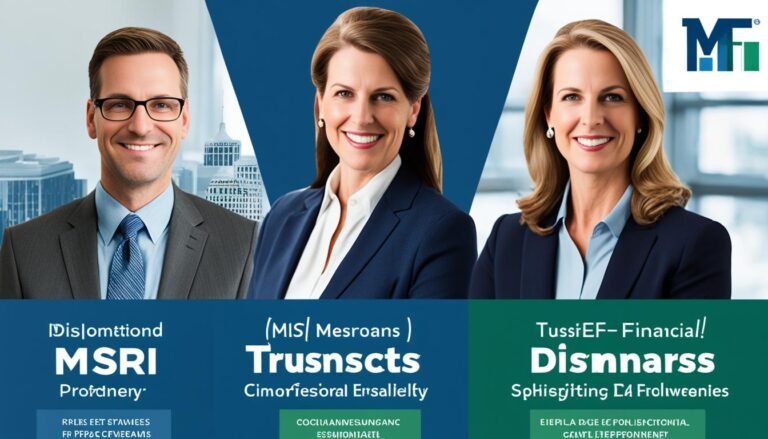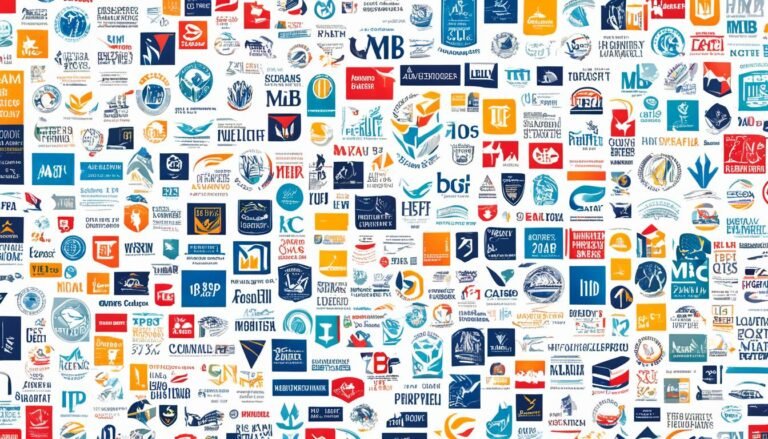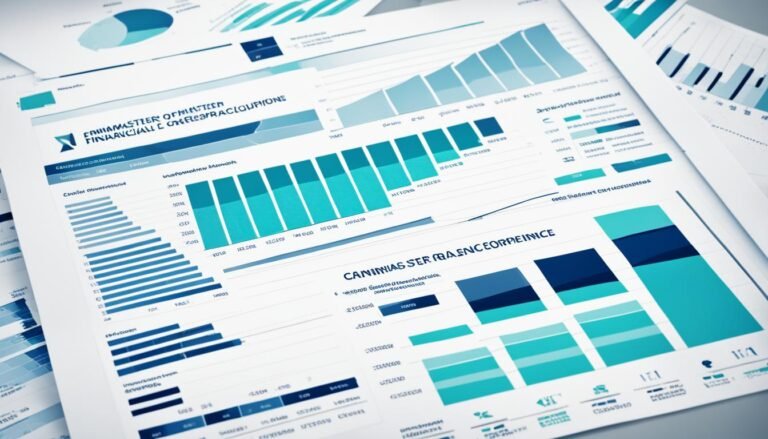Best Master of Science in Quantitative Finance and Risk Management (MSQFRM) Programs
A graduate degree in finance can open many doors in today’s world. It leads to high-paying jobs in the global finance industry.
Professionals who understand numbers, risks, and how to model finances are really in demand. This is true for companies everywhere. So, picking the best Master of Science in Quantitative Finance and Risk Management (MSQFRM) program matters a lot.
Program Overview
The MSQFRM program equips students for jobs in quantitative finance and risk management. It has a detailed curriculum and focus on building careers. This program helps students face the changing financial world with confidence.
Curriculum
Students in the MSQFRM program learn a lot about quantitative modeling and managing risks. They study topics like derivative valuation and machine learning in finance. They also learn about quantitative fixed income modeling and structured financial products.
They also study interdisciplinary subjects to understand financial concepts better. This includes computational programming, econometrics, and financial risk management. These help students get a broad view of finance.
Career Development
In this program, excellence in study is as important as preparing for future careers. Students get individual advice, career coaching, and attend special seminars. These help better their chances in the job market.
Graduates are ready for jobs in many areas, such as quantitative analysis and risk management. They can work as quantitative analysts or financial modelers. The program sets them up for success in finance and related fields.
Students can work with the program to reach their career goals. They can build important industry relationships and find roles they love in finance. The program supports students to make the right career choices.
The MSQFRM program readies students in quantitative modeling and risk management. It offers a complete curriculum and strong career support. This prepares graduates to do well in finance jobs they choose.
FRM Designation
The Master of Science in Quantitative Finance and Risk Management at Temple University helps students qualify for the Financial Risk Manager (FRM) designation. This qualification, given by the Global Association of Risk Professionals (GARP), is top-rated in the finance world.
Students are fully prepared for FRM Exams I and II as part of their coursework. Classes end early before exams, so students have extra time to study. They also get special modules and study materials to help them succeed.
Getting the FRM certification helps open up many job paths in risk management, finance analysis, and more. This is a key qualification for jobs in banking, insurance, consulting, and managing assets.
The FRM certification proves your skill in financial risk management. It boosts your career and professional development.
Through this program, students improve their skills in areas like risk assessment and quantitative modeling. With a mix of hard work in class and industry acknowledgment, students are ready for careers in finance.
Curriculum and Courses
The Master program teaches students skills needed for a finance career. It includes many courses on finance and risk management.
Course Offerings
The MSQFRM program gives a solid education in finance and risk management. It includes courses like Enterprise Risk Management and Quantitative Fixed Income.
- Enterprise Risk Management
- Financial Time Series
- Machine Learning in Finance
- Numerical Methods
- Quantitative Fixed Income
- Stochastic Volatility
- Value at Risk
These courses help students understand finance principles and risk methods.
Enterprise Risk Management
This course is about finding, understanding, and reducing risks in organizations. It talks about different risks and how to manage them.
Financial Time Series
Here, students learn to look at and model financial data over time. They practice working with this data and learning its patterns.
Machine Learning in Finance
This course focuses on using machine learning in finance. It teaches students to solve financial problems using these models.
Numerical Methods
Numerical Methods is important for solving finance problems. It teaches algorithms used for finance and risk management solutions.
Quantitative Fixed Income
This course teaches students how to evaluate fixed income investments. They learn to value bonds and assess risks in these investments.
Stochastic Volatility
The Stochastic Volatility course covers the modeling of changing volatility in finance. It looks at models used for option pricing and risk management.
Value at Risk
Finally, the Value at Risk course looks at managing financial risk. Students learn different ways to measure risk and study risks in finance.
Combined, these courses give a deep understanding of finance and risk management principles. They prepare students for the finance world’s challenges and chances.
Related Graduate Programs
Temple University’s Fox School of Business has many advanced programs in finance. This includes the Master of Science in Quantitative Finance and Risk Management (MSQFRM) program. It aims to train experts in quantitative modeling and risk management for finance careers.
Fox also has a Master of Science in Financial Analysis program. Both programs offer a solid finance education, leading to various job options.
Students can focus on becoming skilled in finance through these choices. They provide the right start for a finance career.
Tuition and Financial Support
When you think about getting a Master of Science in Quantitative Finance and Risk Management, you must look into the costs. Temple University has fair tuition prices for those inside and outside the state.
The rates for this program are decided by the university each year. To get the latest tuition info, you should go to Temple University’s website. You can also reach out to the admissions office.
Temple University also gives out scholarships and financial aid. These help lessen the cost of going to grad school. Don’t forget to check for these programs and apply for scholarships you qualify for.
To figure out the total cost, you need to consider tuition, fees, and living costs. You can find these details on the Student Financial Services website. Knowing the full cost is key to planning how to pay for your degree.
Financial Aid Options
The Master of Science in Quantitative Finance and Risk Management at Temple University provides many ways to get financial help. These include:
- Merit-based scholarships
- Graduate assistantships
- Research assistantships
- External scholarships and grants
- Work-study opportunities
- Federal and private student loans
Exploring these financial aid choices can lower how much money you need for school. Remember, the availability of financial aid may change based on rules and deadlines.
| Financial Aid Option | Description |
|---|---|
| Merit-based scholarships | These scholarships are for those who have done very well in school. They can help pay for part of your tuition. |
| Graduate assistantships | With these, you work at the university as you study. You might get free tuition and some money. |
| Research assistantships | You work on research projects with teachers. This can come with money and help paying for school. |
| External scholarships and grants | There are scholarships outside the university, too. You need to apply separately for these. |
| Work-study opportunities | Work-study is a part-time job available on campus or nearby. It can help with your expenses. |
| Federal and private student loans | Loans can cover what you can’t pay with other aid. Make sure to understand all the terms. |
Plan Ahead for Financial Success
Getting ready to study Quantitative Finance and Risk Management means you need a good money plan. Look at all the ways to get help, like scholarships and loans. This way you can focus on school and your future job without money worries.
If you need help with financial stuff, Temple University’s Student Financial Services is there for you. Don’t hesitate to ask them about tuition, aid, or scholarships.
Program Contact
Do you have questions or need more info about the Master of Science in Quantitative Finance and Risk Management at Temple University’s Fox School of Business? Our admissions team is here to help. For program questions and admissions, contact Chang Liu, the associate director of Graduate Admissions.
Chang Liu can be reached by phone at 215-204-3315 or by email at chang.liu@temple.edu. We encourage you to ask Chang Liu about the program, application steps, and what you will learn. Our team will guide you through the admissions process. We aim to help you make the best choice about pursuing this program.
Student Clubs and Organizations
Temple University’s Fox School of Business has over 30 student clubs. These clubs offer great chances to make connections in their field and grow skills. By joining, students can become part of an active network. This can help their future career by adding to their resume and finding good jobs or internships.
Some groups at the Fox School are:
- The Fox Graduate Student Association
- Net Impact
- International Business Association
- Fox Professional Speakers
- Entrepreneurial Students Association
Each club has different things to do like hearing guest speakers, helping the community, or competing in cases. These events let students meet pros in their field, learn to lead, and make friends that may lead to future work success.
Quote:
“Being part of a student club or organization allows you to go beyond the classroom, gain hands-on experience, and build a network of like-minded individuals who share your passion for your field of study. It’s a great way to enhance your academic journey and prepare yourself for a successful career.”
– John Smith, President of the Fox Graduate Student Association
Global Immersions
Fox graduate students get to join the Global Immersions program at Temple University. These immersive programs take students to exciting places to learn. They get to see and understand different cultures, languages, and ways of doing business.
Students explore how business works in other countries. They visit global companies and learn a lot in a short time. The experience also teaches them about global innovation and starting businesses worldwide.
| Previous Destinations | Participating Companies |
|---|---|
| China | Black and Decker |
| India | BMW |
| Latin America | Deloitte |
| South Africa | Microsoft |
“The Global Immersions program provided me with invaluable cultural experiences that I can apply in my future career in international business.” – John Smith, Fox graduate student
In these programs, students learn a lot about global business. They also learn to understand and be open to other cultures. This is very important for working in international business.
Students get to work with famous companies, like Black and Decker and BMW. They do real projects and study real cases. This helps them use their knowledge in a real-world setting.
This also opens doors for future jobs. It’s a great chance to meet people in the international business world. Plus, it’s a great way to learn and grow personally and professionally.
The Global Immersions program prepares students for a global economy. It helps them understand business in different countries. And it creates opportunities to build a career connecting with people from around the world.
Benefits of Global Immersions:
- Exposure to comparative business environments
- Engagement with global companies
- Intensive learning experiences
- International innovation and entrepreneurship insights
- Cross-cultural understanding and empathy development
- Networking opportunities
For those dreaming of working internationally, this program is a great start. Whether it’s at big global companies, your own business, or jobs that need international skills, this program helps.
Fox graduate students dive into a transformative journey with Global Immersions. They’ll gain deep cultural insights that’ll guide their professional futures. And this prepares them to succeed in a complex international business world.
Accreditation
The Fox School of Business at Temple University has been accredited by AACSB since 1934. This long-standing accreditation shows their dedication to excellence and quality of education.
The AACSB accreditation is crucial. It indicates the high quality and credibility of the business school. The Fox School of Business has demonstrated its excellence through faculty qualifications, curriculum, and industry engagement.
For students in the Master of Science in Quantitative Finance and Risk Management, AACSB accreditation is key. It means the program meets strict standards, helping students succeed in finance.
Having AACSB accreditation is a big deal. It reflects the Fox School of Business’s commitment to high academic standards. They ensure students get a top-notch education that arms them for the business world.
Career Outcomes and Alumni Network
The Master of Science in Quantitative Finance and Risk Management at UMichigan is famous for its math and stats teachings. It gives students a solid base in analytical math. The aim is to help students find good jobs across many fields.
After finishing the program, students find success in their careers. They become analysts, engineers, managers in finance and risk areas. Companies love to hire our alumni. They value their skills, which makes our students strong in the job market.
“The program at UMichigan gave me skills and connections that landed me a job in finance. I networked with professionals and alumni, helping me secure a top position.” – John Smith, Program Alumni
The program creates a community of creative minds. It links students, alumni, and industry experts. Students get advice, find internships, mentors, and job help. The school also arranges events for networking and learning from pros.
Students use our strong network and industry ties to boost their careers. At UMichigan, they can intern, research, and work with industry. This real-world work builds the skills they need for success after graduation.
Notable Alumni Success Stories
- Sophia Johnson – Sophia works as a quantitative analyst after our program. She’s skilled in finance modeling. Her strategies are praised in the industry.
- Michael Thompson – Michael advanced quickly. He’s great at risk management. Michael plays a key role at a top insurance company.
- Emily Rodriguez – Emily chose to be a financial engineer. The program prepared her to boost trading strategies for a hedge fund.
The UMichigan program readies students for finance jobs. It blends intense study, hands-on work, and networking. Graduates are set to do well in their fields.
The Value of Networking
Networking is key for job success. The UMichigan program helps students grow their connections. They meet alumni who are now industry leaders. This opens doors for insights, jobs, and mentorship.
Conclusion
Choosing to pursue a Master of Science in Quantitative Finance and Risk Management (MSQFRM) is wise. Especially for those wanting to advance in finance. These courses teach everything needed to stand out. This includes how to analyze data, understand risks, and model finances.
After finishing a top MSQFRM program, many job paths open up. Jobs in quantitative finance, risk management, and financial tech are in high demand. With a good MSQFRM degree, you can aim for roles like being a quantitative analyst or a risk manager.
The best MSQFRM programs come from top universities. They offer tough teaching, skilled teachers, and chances to build a strong network. Students get a full learning experience that mixes book knowledge with hands-on practice. This helps them shine in the finance world and find interesting jobs.








